Samsung made a wild rush in the mid-range market this mid-2018 as they release one device after another. Although today, we’ll be looking at their newest contender the Galaxy J8. Is it truly the camera wonder it claims to be? Let’s find out in our full review.
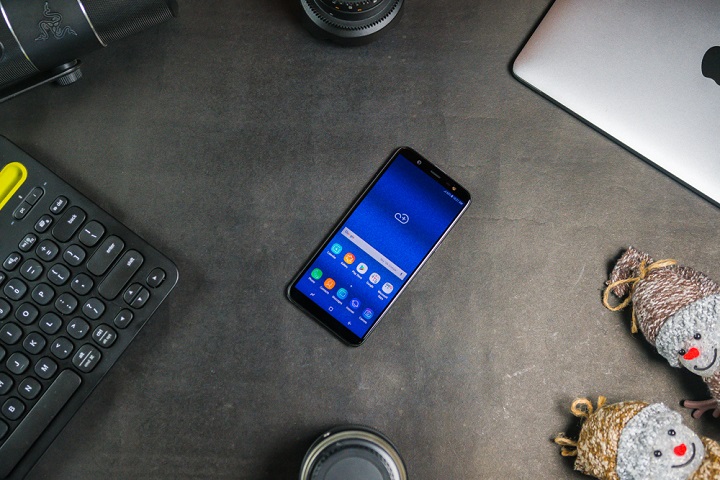
Table of Contents
Looks like Samsung is following a very strict design structure for their 2018 mid-range smartphones lately. The Galaxy J8 sports the same design philosophy as its A-series and J-series cousins. A simple unibody frame with no noticeable linings or flair. This makes the device look pretty basic and bland but it does feel solid and premium in the hands. It’s by no means ugly but it also doesn’t stand out either.
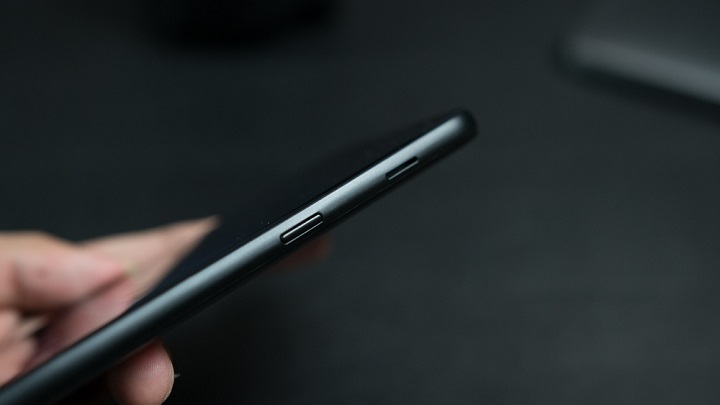
The phone follows the button placement of its cousins — the power button on the right and the volume rockers on the left. The buttons are clicky and have good haptic feedback.
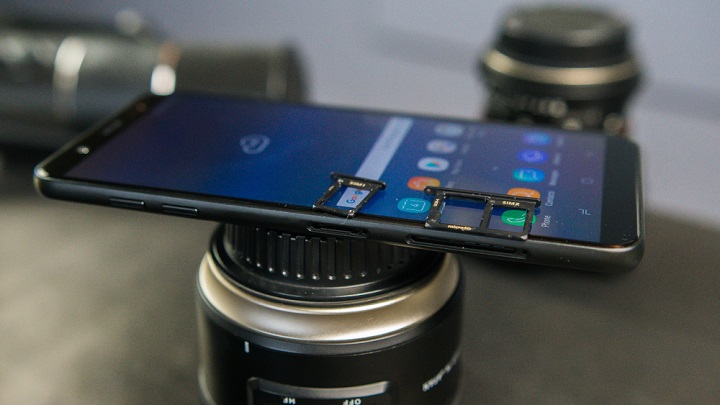
The same goes for the SIM slots and the speakers. This is a setup we first saw with the Galaxy A6 and A6+.
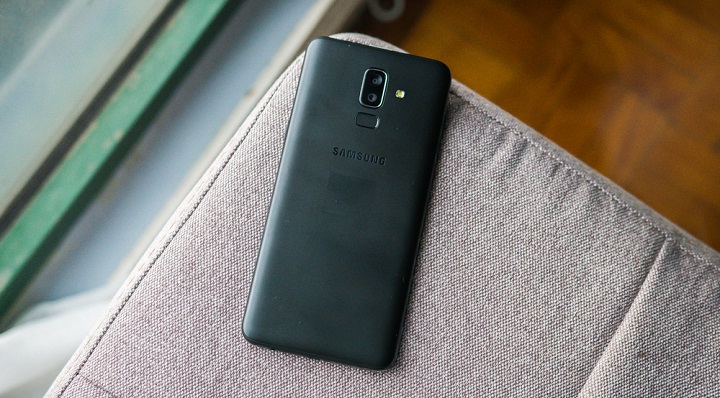
The back is pretty clean with just the Dual camera module accompanied by a LED flash, the signature rectangular fingerprint scanner, and a subtle silver Samsung logo.
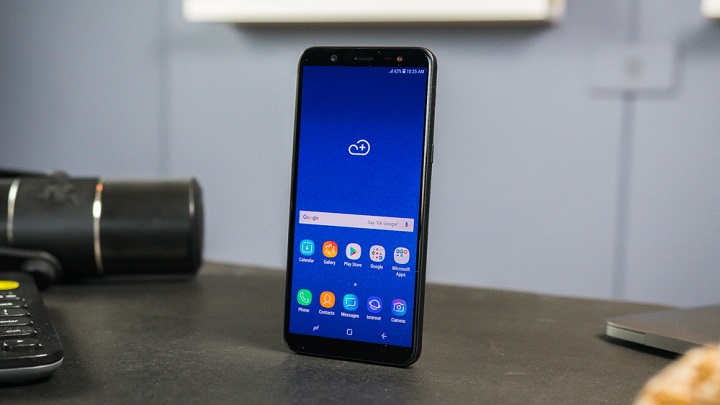
The device is slim and relatively light, making it an easy fit for pockets. If there is one thing that really bugged us is that its smooth back panel is a smudge magnet. Granted that it is normal in devices nowadays, wiping off the smudge on the J8 requires more than just a microfiber. We had to resort to using water on tissue or wiping it aggressively just to remove the marks.

The Galaxy J8 sports a 6-inch HD+ Super AMOLED display at 1480 x 720 pixels. The AMOLED panel adds a lot more saturation and contrast to icons and colors do pop out, however, we did notice the pixelation of some texts and the icons don’t look as crisp. The change in resolution was also very noticeable since we’re already accustomed to higher quality displays. Still, the 18.5:9 screen provided enough screen-to-body ratio for an enjoyable viewing experience. Brightness is also high enough for outdoor use and low enough for night time operations.
Audio-wise, we got a pretty underpowered single side-firing loudspeaker. The mids and highs are good but the lows, as expected, are virtually non-existent. It also loses a bit of clarity at max volumes and isn’t loud enough to provide audio to an entire room.

This is where Samsung boasts the capabilities of the J8. It comes with a 16MP f/1.7 aperture primary rear camera paired with a 5MP f/1.9 aperture secondary. The front, on the other hand, is a 16MP f/1.9 aperture shooter. For features, we have Night, Panorama, Pro, Beauty, Live Focus, Auto, Stickers, and Continuous Shot on the rear while the front has Selfie Focus, Selfie, Stickers, and Wide Selfie. The modes are easily accessible and changed at the top (portrait orientation) or side (landscape orientation) of the screen during operation.

Let’s talk about the dual rear lenses first. Samsung may not have an empty boast here as the Galaxy J8 can take great photos but at the right conditions. In good lighting with proper angle and focus and during macro shots, images have sharp details, on point color reproduction and accuracy, and great quality. This is actually quite impressive for a mid-range device.
Although, all that goes to waste once you point and shoot. The autofocus of the rear pair takes a while to lock-on while quick shots tend to blur images and put focus points off the mark. Low-light performance isn’t too great either. While details and brightness are preserved, colors are washed-out and sharpness isn’t up to par.
Now for the front shooter. Selfies taken by the front in the right conditions have good detail, color reproduction, and accuracy, however, it tends to overexpose the image when in direct light sources, even if it isn’t directed at the camera. The stickers add a bit more fun and funk to selfies. Either way, the front shooter is good enough for casual social media uploads.
Video caps out at 1080p at 30fps in MP4 format. Quality is just average while colors are a little washed out but still acceptable. Audio recorded on video is clear and audible. Sadly, autofocus is a little jittery and we don’t have any stabilizers so footage can be shaky. See sample video below.
Running the software department is Samsung’s Experience UI 9.0 on top of Android 8.0 Oreo. It’s a pretty familiar UI now as it’s also found on other Galaxy A and J-series devices. It’s a pretty clean, neat and simple UI with easy gestures.
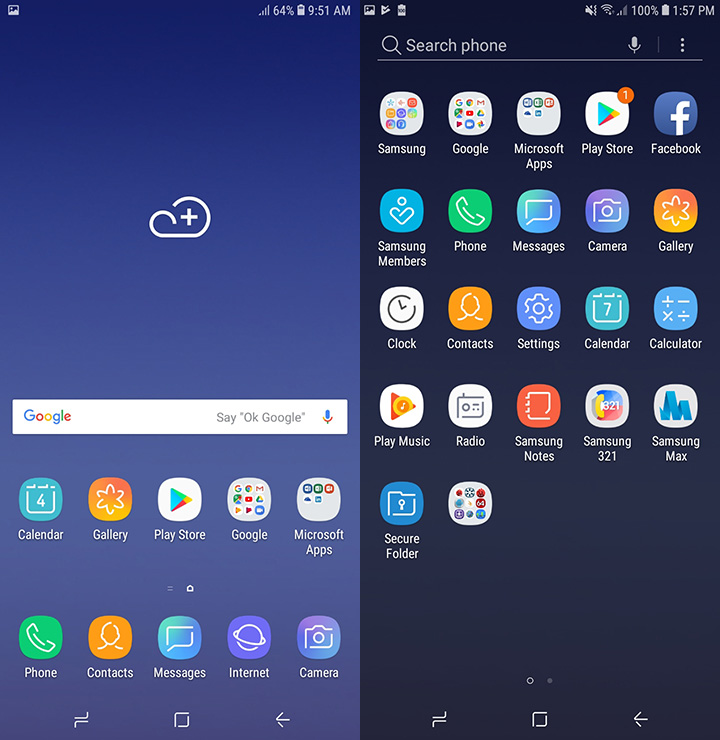
The app drawer is accessed by swiping up and Bixby is accessed by swiping right. Samsung’s been busy including Bixby to a majority of their devices now, even at the mid-range segment.
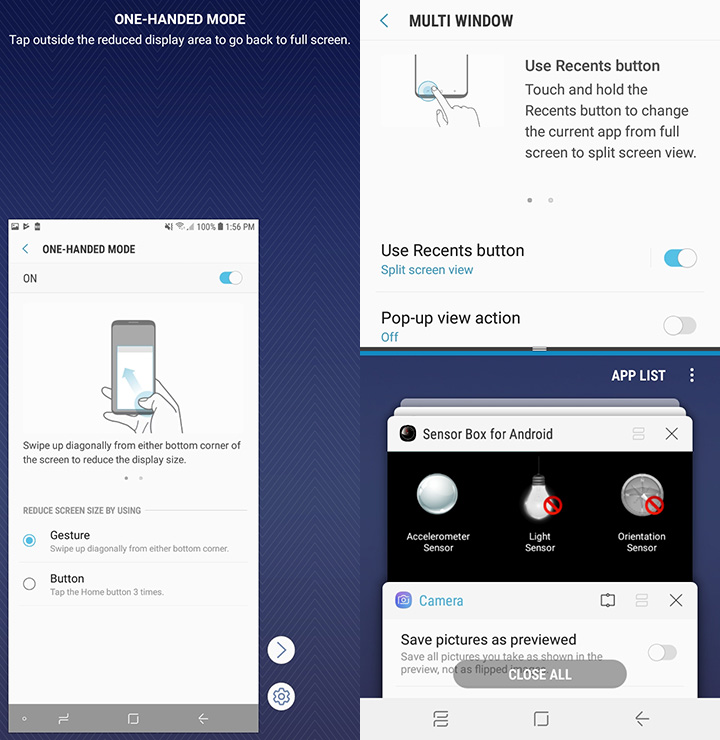
We get a few extra features and gestures like One-handed mode, Game launcher, Multi-window, Finger gesture, and more. There are a few sets of pre-installed apps which include Samsung’s own homebrew, Google’s standard set, and a few Microsoft applications. All these combined with the System and we were left with about 24.1GB out of the initial 32GB.
Running the show for the phone is the Qualcomm Snapdragon 450 chipset, it’s already a year old but is still a pretty capable performer. Mundane tasks like texting, social media consumption, and navigation are a breeze. Multitasking isn’t a problem either thanks to the ample 3GB RAM.
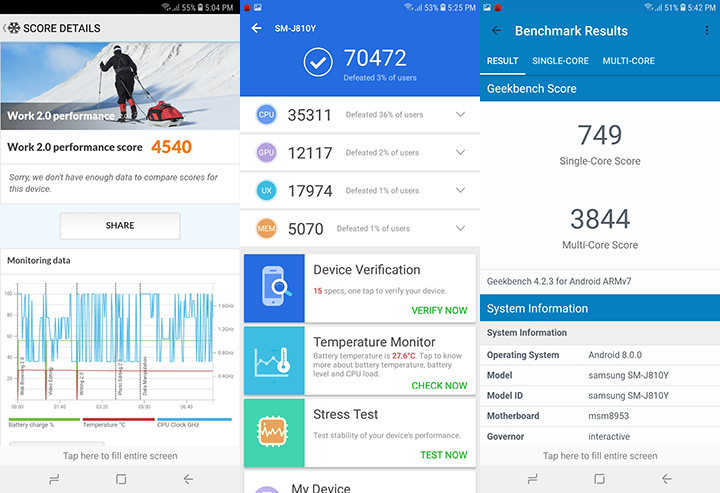
Low to medium games like Candy Crush, Zombie Tsunami, Helix Jump, and Mobile Legends are easily playable with little to no frame drops. Heavier games though like Tekken Mobile, PUBG Mobile, and Asphalt 9 are still playable but with noticeable frame drops at heavier scenes. There’s a bit of heating on the back on prolonged sessions but it doesn’t reach dangerous levels.
The Galaxy J8 has basic connectivity features covered as it has WiFi, Bluetooth 4.2, GPS, and OTG. Call quality is crisp and clear and GPS works fine on apps like Grab, Waze, and Google Maps. Signal reception is good when we were in serviceable areas.

The device comes with a respectable 3,500mAh battery. It lasted as about a day or two on light to moderate usage with or without WiFi on. During heavier usage, it lasts about a day or a day and a half with WiFi on.
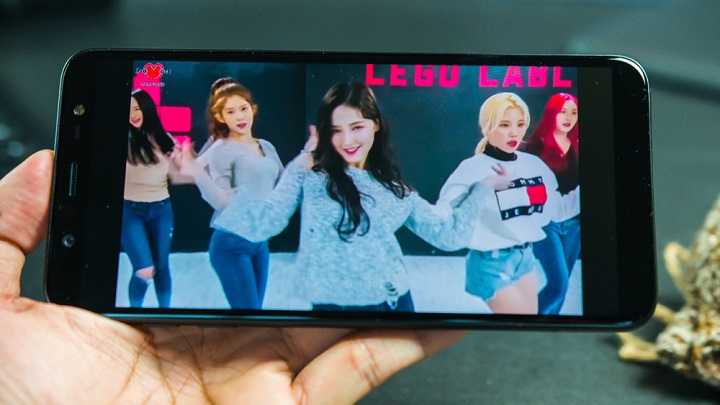
The battery life of the device actually surprised us as it lasted a good 22 Hours and 21 Minutes in our standard video loop test (Playing a 1080p mp4 video at 50% brightness and audio in airplane mode with earphones plugged in). PC Mark rated it at 17 Hours and 25 minutes, which is also a remarkable feat.

The Galaxy J8 in itself is a very respectable device. It has a nice screen, capable cameras, clean UI, and remarkable battery life. It has its caveats though like poor low-light performance, jittery autofocus, hard to wipe-off smudge magnet back panel and underpowered speakers. Samsung may be right in flaunting the cameras of the device but it only truly shines in the right conditions.
Sadly at Php 15,990USD 272INR 23,099EUR 260CNY 1,984, it has stiff competition from other manufacturers who offer devices at a better price to performance ratio.
What we liked:
What we didn’t like:

YugaTech.com is the largest and longest-running technology site in the Philippines. Originally established in October 2002, the site was transformed into a full-fledged technology platform in 2005.
How to transfer, withdraw money from PayPal to GCash
Prices of Starlink satellite in the Philippines
Install Google GBox to Huawei smartphones
Pag-IBIG MP2 online application
How to check PhilHealth contributions online
How to find your SIM card serial number
Globe, PLDT, Converge, Sky: Unli fiber internet plans compared
10 biggest games in the Google Play Store
LTO periodic medical exam for 10-year licenses
Netflix codes to unlock hidden TV shows, movies
Apple, Asus, Cherry Mobile, Huawei, LG, Nokia, Oppo, Samsung, Sony, Vivo, Xiaomi, Lenovo, Infinix Mobile, Pocophone, Honor, iPhone, OnePlus, Tecno, Realme, HTC, Gionee, Kata, IQ00, Redmi, Razer, CloudFone, Motorola, Panasonic, TCL, Wiko
Best Android smartphones between PHP 20,000 - 25,000
Smartphones under PHP 10,000 in the Philippines
Smartphones under PHP 12K Philippines
Best smartphones for kids under PHP 7,000
Smartphones under PHP 15,000 in the Philippines
Best Android smartphones between PHP 15,000 - 20,000
Smartphones under PHP 20,000 in the Philippines
Most affordable 5G phones in the Philippines under PHP 20K
5G smartphones in the Philippines under PHP 16K
Smartphone pricelist Philippines 2024
Smartphone pricelist Philippines 2023
Smartphone pricelist Philippines 2022
Smartphone pricelist Philippines 2021
Smartphone pricelist Philippines 2020
confucius says:
Napagiiwanan na ang samsung lalo sa budget and mid range, the only ones really saving them are their flagships, which unfortunately a lot of people dont buy because its too overpriced. So in the end, deads.
Kailangan pa kumuha ng mga celebrity endorsers lol. Your brand name is already recognized, utter fail.
James says:
Yup ehehe naluluge na Samsung kasi d applicable ung price sa specs .. Sobrang log pa pag tagal ..